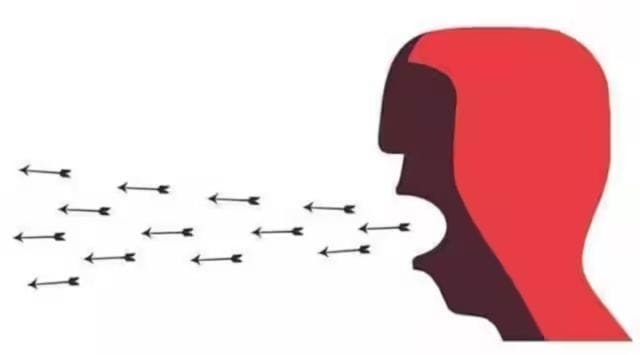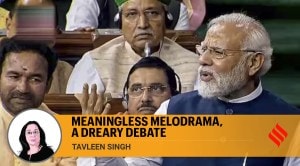Sedition law is not gone, it’s set to be more draconian
The Bharatiya Nyaya Sanhita Bill, brought to replace the colonial-era Indian Penal Code, could make the current sedition law wider but without the safeguards that courts have created so far
 The Bill proposed to replace the Indian Penal Code (IPC) is named the Bharatiya Nyaya Sanhita Bill, 2023, which interestingly translates to the “Indian Justice Code” Bill. (Representational image)
The Bill proposed to replace the Indian Penal Code (IPC) is named the Bharatiya Nyaya Sanhita Bill, 2023, which interestingly translates to the “Indian Justice Code” Bill. (Representational image) Amidst controversies on the Manipur issue, government interference in Delhi administration, price rise, etc., the central government took everyone by surprise by introducing three crucial Bills in the Lok Sabha on the last day of the Monsoon Session of Parliament. It tabled new legislation to “replace” existing laws relating to criminal procedure, offences and evidence. The Bill proposed to replace the Indian Penal Code (IPC) is named the Bharatiya Nyaya Sanhita Bill, 2023, which interestingly translates to the “Indian Justice Code” Bill. Home Minister Amit Shah claimed that the new legislation will replace the British-drafted Indian Penal Code of 1860 and purportedly make the law more justice-oriented for Indian citizens.
He also made a grand announcement that the proposed legislation would repeal the sedition law. This is against the background of the sedition law under Section 124 of the IPC having been put in abeyance by the Supreme Court since May 2022 — mainly because the central government undertook a re-look at the law. This also follows the Law Commission’s report of May of this year which suggested changes to section 124A of the IPC that would have made it more draconian.
However, a plain reading of the legislation showed that while the explicit offence of “sedition” has been removed, the offence more or less still exists in an all-new variant. The chapter on offences against the state now contains clause 150 that provides for an offence of “acts endangering sovereignty, unity and integrity of India”. The language of this clause however closely resembles the current section 124A, as the following comparison will demonstrate:
Whoever, purposely or knowingly by words, either spoken or written, or by signs, or by visible representation, or by electronic communication or by use of financial means, or otherwise, excites or attempts to excite, secession or armed rebellion or subversive activities, or encourages feelings of separatist activities or endangers sovereignty or unity and integrity of India; or indulges in or commits any such act shall be punished with imprisonment for life or imprisonment that may extend to seven years, and shall also be liable to a fine.
Explanation: Comments expressing disapprobation of the measures, or administrative or other action of the government with a view to obtaining their alteration by lawful means, without exciting or attempting to excite the activities referred to in this section.
The proposed clause 150 demonstrably makes the law of sedition, under a new name, more stringent. The inclusion of “by use of financial means” creates an ambiguity especially because the notes on the proposed clauses do not provide any explanation — for that or anything else in the new law. There is also no clarity on what the term “subversive” means for the purpose of this clause. The endeavour seems to be to make the current sedition law wider but without the safeguards that judicial pronouncements have created so far.
Another concept — “encouraging feelings of separatist activities” — has been introduced. This is couched in broad terms that could include a lot of political speech and literature, even if it does not lead to any violence against the state.
The government appears to have accepted the recommendation of the Law Commission regarding the punishment under the provision, but in doing so has created another ambiguity. The clause prescribes life imprisonment, or, imprisonment up to seven years – without prescribing anything in between, or laying down guidelines for imposition of sentence. The current punishment prescribed under section 124A of the IPC also suffers from the same ambiguity. That is one of the grounds for the constitutional challenge before the Supreme Court.
Interestingly, the proposed legislation has introduced a new offence of “terrorist act” that does not exist under the IPC. The Unlawful Activities Prevention Act (UAPA) currently defines “terrorist act” in slightly narrower terms to specify that such an offence would be attracted when the integrity and sovereignty of India are threatened. However, concerningly, clause 111 of the Bill broadens the ambit of the offence to go beyond the threat to the state by including any act “to disturb public order” as a terrorist act if it causes “damage or destruction of property or disruption of any supplies or services essential to the life of the community, destruction of a Government or public facility, public place or private property”.
This would essentially allow the police to prosecute any political protests or strikes, violent or otherwise, as a terrorist act. For example, the recent farmer protests would have been termed a terrorist act under this provision. Clause 150 read with clause 111 of the Bill therefore appears to create an even more draconian regime through the sedition law.
One also wonders why clause 111 was not included under the chapter on offences against the state. A possible reason for this could be that both clauses are similar in spirit and the inclusion of clause 111 more or less obviates the need for clause 150. So the statements regarding the “repeal” of the sedition law are misleading, and the old wine appears to have been repackaged in a larger bottle.
The writer, Advocate-on-Record of the Supreme Court of India, is the author of The Great Repression — the story of sedition in India
EXPRESS OPINION
Must Read
More Explained
Aug 13: Latest News
- 01
- 02
- 03
- 04
- 05




































